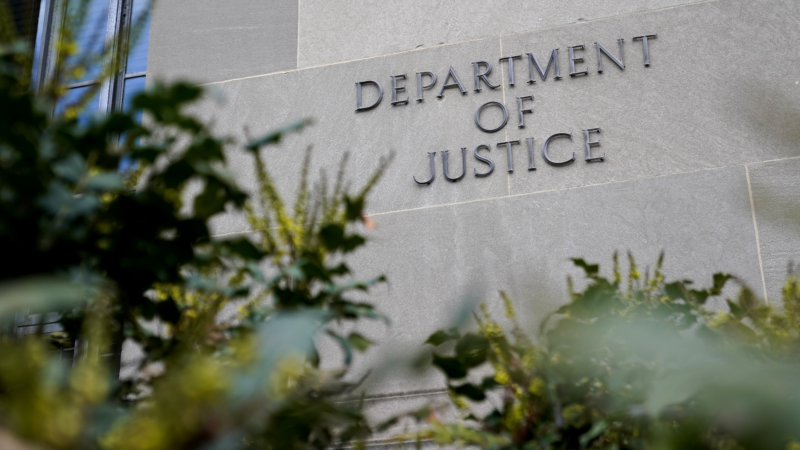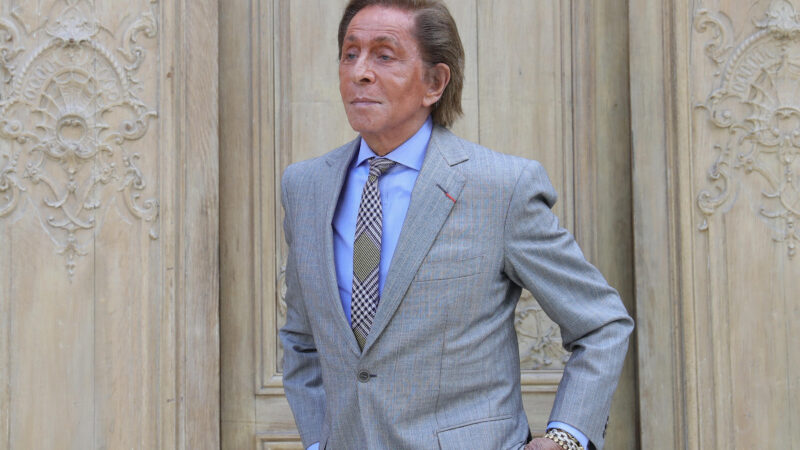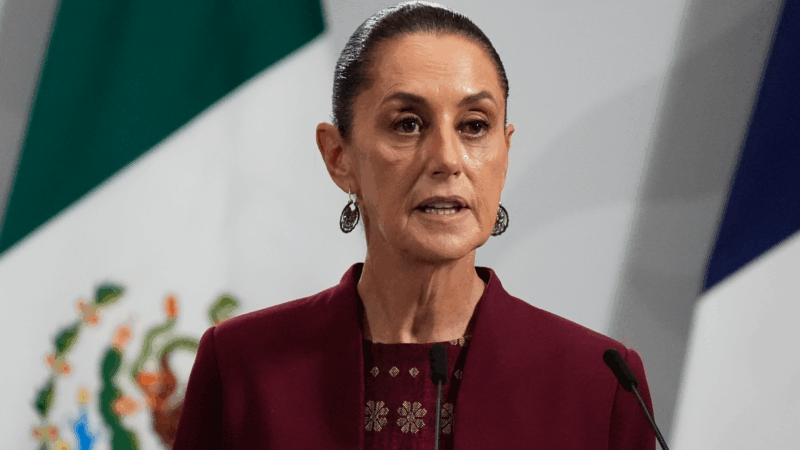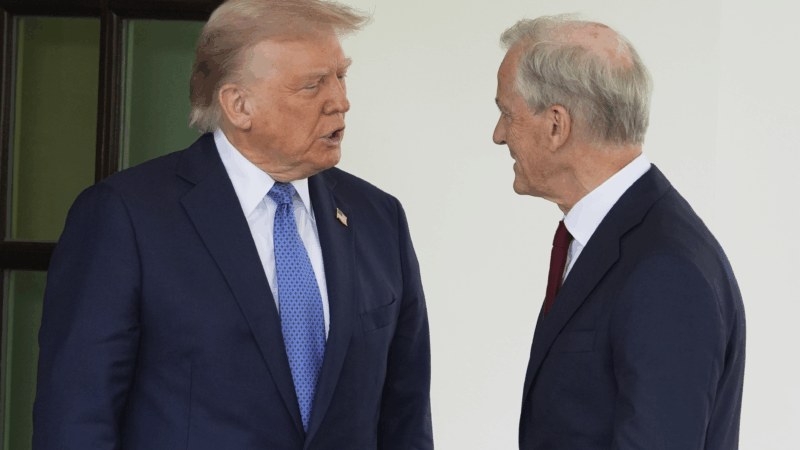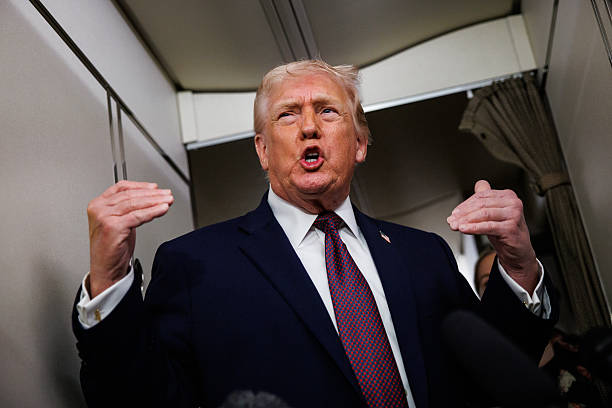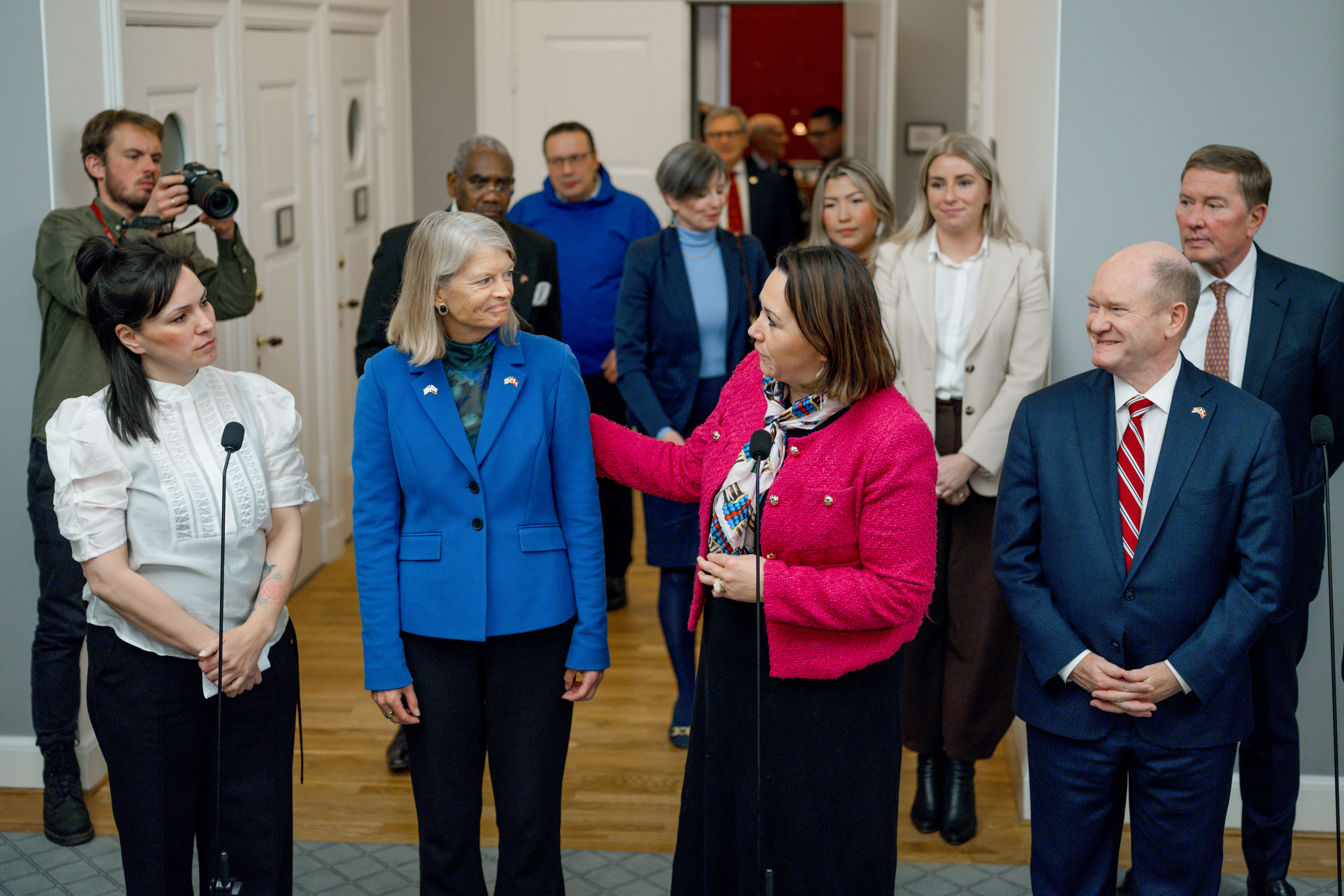What is the ‘state secrets privilege’ invoked by the Trump administration?
The Trump administration says it won’t share any more information in response to a judge’s request about three recent deportation flights carrying Venezuelan migrants because it’s a state secret.
The Justice Department said in a court filing Monday that it was exercising what’s commonly called the “state secrets privilege” in the case because sharing the information would harm diplomatic relations and national security.
It’s part of a lawsuit the administration is facing after President Trump invoked the 1798 Alien Enemies Act to deport people it accuses of being members of a violent Venezuelan prison gang to El Salvador earlier this month.
Here’s what to know about the state secrets privilege — the legal doctrine now being exerted by the DOJ.
What is the state secrets privilege?
The privilege allows the U.S. government to withhold sensitive information — such as intelligence sources and methods and foreign affairs details — from becoming public as part of a court case. The government can even intervene in a case that it’s not a party to and exercise the privilege, if it believes damaging information could come out during the course of the proceedings.
“Privilege is designed or intended to navigate those areas where the tectonic plates of the executive privilege and the judicial responsibility sort of collide,” said George Croner, a non-resident senior fellow at the Foreign Policy Research Institute.
It’s often invoked in matters involving the military, national security and foreign affairs, said Croner, who is also former principal litigation counsel at the National Security Agency.
Typically the head of the federal agency that’s asserting the state secrets privilege will sign a declaration or affidavit to the judge explaining why withholding information is necessary. In this case, Attorney General Pam Bondi, Secretary of State Marco Rubio and Homeland Security Secretary Kristi Noem all submitted signed declarations to Judge James Boasberg.
Federal judges often defer to the executive branch in requests for the state secrets privilege, but sometimes they ask to review the evidence privately or reject the government’s ask.
Ashley Deeks, a University of Virginia law professor who teaches classes on national security, said critics have historically taken issue with the lack of transparency permitted by the legal maneuver.
“There has been a concern about the government invoking it to conceal illegal activities or activities that might embarrass the government,” she said.
The Center for Constitutional Rights, a nonprofit legal advocacy group, previously argued that the state secrets privilege “essentially allows the executive branch to dictate to the federal courts what cases they can and can’t hear.”
The history of the legal doctrine
Two U.S. court cases set up the framework for the state secrets privilege, according to a recent report by the Congressional Research Service.
The first dates back to 1876 and involves the case of a Union spy hired by President Abraham Lincoln to pass on information about Confederate troop movements during the Civil War. The spy’s estate later sued the government over allegedly unpaid wages.
In that case, known as Totten v. United States, the Supreme Court ruled that a court cannot hold a trial that would “inevitably lead to the disclosure of matters which the law itself regards as confidential” — in this instance a contract for espionage.
Three-quarters of a century later, the Supreme Court further distilled the reasoning behind the state secrets privilege.
In 1952, a case known as United States v. Reynolds went before the Supreme Court, in which the widows of three civilian crew members who were killed in a U.S. military airplane crash sued the government to obtain the accident investigation report.
The Air Force argued that releasing the accident report would compromise national security, since the flight was part of a mission to test secret electronic equipment.
The Supreme Court ultimately ruled for the government, declaring that it could withhold the sensitive military information. Still, Chief Justice Fred M. Vinson acknowledged in the majority opinion that such a legal doctrine could be tricky for judges, who might have to make a ruling without seeing the concealed evidence for themselves.
“Judicial control over the evidence in a case cannot be abdicated to the caprice of executive officers,” Vinson wrote. “Yet we will not go so far as to say that the court may automatically require a complete disclosure to the judge before the claim of privilege will be accepted in any case.”
How Trump and other recent presidents have used the privilege
In recent years, government lawyers under both Republican and Democratic presidents have invoked the state secrets privilege in multiple cases related to the global war on terrorism, including lawsuits over the NSA’s warrantless wiretapping program and the Central Intelligence Agency’s torture — or “enhanced interrogation” — program.
A 2010 University of Pennsylvania Law Review article found that the U.S. government had invoked the state secrets privilege in more than 100 cases between 2001 and 2009.
The American Civil Liberties Union said in 2007 that the administration of then-President George W. Bush was using the privilege “to evade accountability for torture, to silence national security whistleblowers, and even to dismiss a lawsuit alleging racial discrimination.”
In 2009, then-Attorney General Eric Holder rolled out new rules within the Justice Department dictating when the government would exert the privilege. NPR reported at the time that the Obama administration, which Holder was a part of, was criticized by the ACLU for simultaneously invoking the privilege in ongoing cases.
The Supreme Court ruled in 2022 that the federal government could invoke the privilege to block two CIA contractors from testifying about the post-9/11 torture of a prisoner named Abu Zubaydah at a “black site” in Poland in a high-profile case about the privilege’s limits.
Deeks of the University of Virginia said the Trump administration’s use of the privilege in the Venezuelans’ case was noteworthy because it wasn’t in response to a request for information from the opposing attorneys but rather from the judge himself. Judge Boasberg has been trying to determine whether the Trump administration violated his order to halt or turn around the deportation flights.
Rubio and Noem argued in their declarations that releasing information about the deportation flights could complicate diplomatic relations and compromise law enforcement methods.
If Boasberg rejects the government’s arguments, Croner said he thought the Justice Department would likely appeal.
“And eventually, somewhere down the road, you will see perhaps another decision from the U.S. Supreme Court on the parameters of the state secrets privilege in terms of how it was invoked in this case,” he said.
Italian fashion designer Valentino dies at 93
Garavani built one of the most recognizable luxury brands in the world. His clients included royalty, Hollywood stars, and first ladies.
Sheinbaum reassures Mexico after US military movements spark concern
Mexican President Claudia Sheinbaum quelled concerns on Monday about two recent movements of the U.S. military in the vicinity of Mexico that have the country on edge since the attack on Venezuela.
Trump says he’s pursuing Greenland after perceived Nobel Peace Prize snub
"Considering your Country decided not to give me the Nobel Peace Prize… I no longer feel an obligation to think purely of Peace," Trump wrote in a message to the Norwegian Prime Minister.
Trump has rolled out many of the Project 2025 policies he once claimed ignorance about
Some of the 2025 policies that have been implemented include cracking down on immigration and dismantling the Department of Education.
U.S. lawmakers wrap reassurance tour in Denmark as tensions around Greenland grow
A bipartisan congressional delegation traveled to Denmark to try to deescalate rising tensions. Just as they were finishing, President Trump announced new tariffs on the country until it agrees to his plan of acquiring Greenland.
Can exercise and anti-inflammatories fend off aging? A study aims to find out
New research is underway to test whether a combination of high-intensity interval training and generic medicines can slow down aging and fend off age-related diseases. Here's how it might work.

